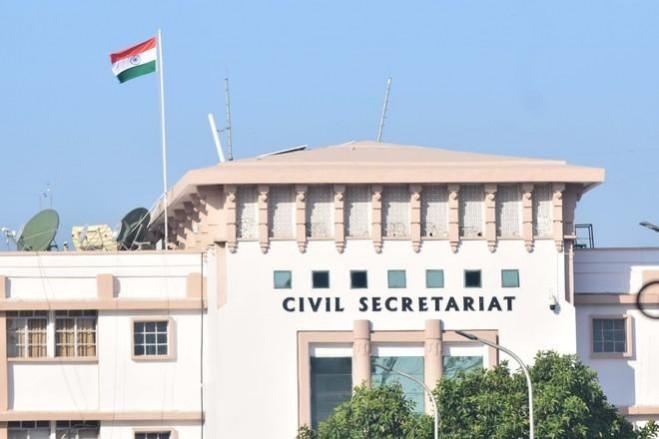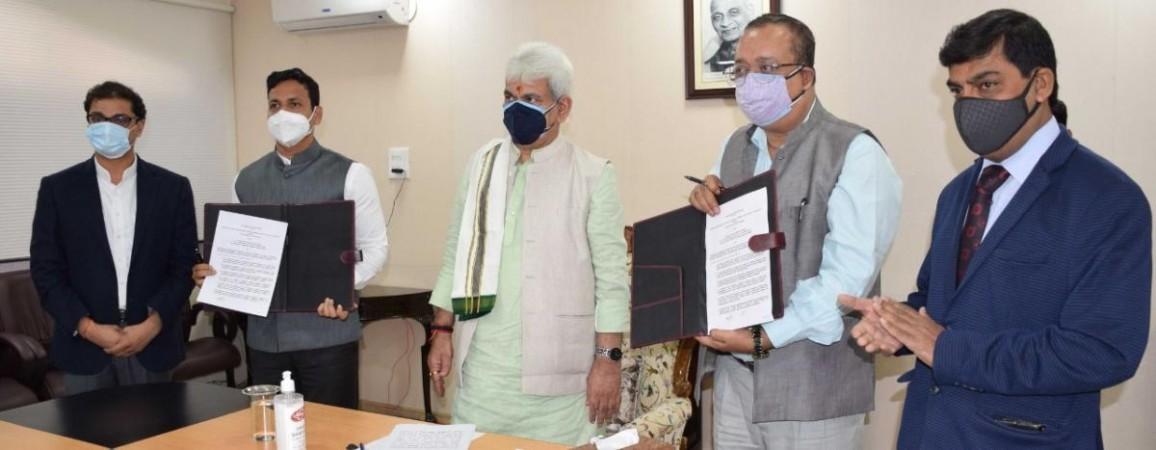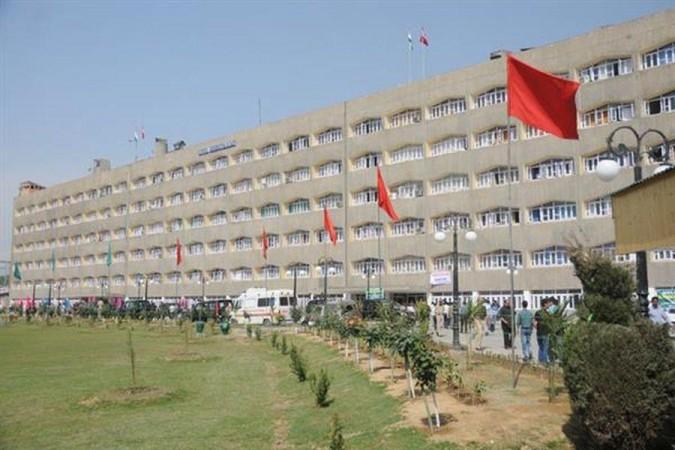Putting an end to the 149-year-old practice of 'Darbar Move', the Jammu and Kashmir administration has completely transitioned to e-office to ensure the functioning of the Civil Secretariat and other 'move offices' from Srinagar and Jammu cities, simultaneously, throughout the year.
Lieutenant Governor of J&K, Manoj Sinha on Monday said that now both the Jammu and Srinagar secretariats can function normally for 12 months. "This will save the government Rs 200 crores per year, which will be used for the welfare of deprived sections", he said.

3.5 lakhs physical files digitalized
In the process to move to e-office, the J&K government has digitalized over two crore pages of over 3.5 lakh physical files of different government departments and uploaded them into the new e-office project implemented by the UT's civil secretariat.
This was done after the Jammu and Kashmir administration, in the light of the Covid-pandemic, passed an order to suspend this year's bi-annual 'Darbar Move' - the practice of shifting the entire government machinery in the summer months (May-October) to Srinagar and in the winter months (November to April) back to Jammu.
The UT's Information Technology Department with NIC, e-Governance Agency, and State e-Mission Team (SeMT) have successfully implemented the e-office by scanning and digitizing 3.50 lakh files of the secretariat.

Historic decision was taken on April 5 this year
The General Administration Department of J&K had issued a circular on April 5 this year in which it was decided that there will be no physical movement of files during 'Darbar Move'. This step was taken to minimize the financial burden of the annual 'Darbar Move' practice on the state exchequer.
First time in the history of Darbar Move, it was decided that only 10 trucks would be engaged, that too, for shifting only highly sensitive and confidential files. All other files were uploaded on the e-office system and files are now available both at Jammu and Srinagar offices.
Government to save Rs 200 crores annually
Shifting to e-office and e-files has eliminated the requirement of sending truckloads of physical files from one department to another facilitating simultaneous functioning of civil secretariats at both Jammu and Srinagar profoundly making the system faster, substantially reducing the overhead costs, saving huge resources, increasing efficiency, and transparency.

The cash-starved J&K government, every year, used to spend a whopping amount of Rs 200 crores on 'Darbar Move' by hiring hundreds of trucks to carry files from one capital to another.
'Darbar Move' practice started in the year 1872
The practice of Darbar Move was started in 1872 by Maharaja Ranbir Singh - the second Dogra ruler of the erstwhile princely state of J&K, to escape the extreme heat of Jammu during summers and biting cold of winters in Srinagar.
However, the practice was continued by elected governments post-independence in order to provide access to people of both the regions by turns to the seat of power in the erstwhile State.
J&K High Court questioned the continuation of this practice
In a historic decision on May 5, 2020, the J&K High Court had directed the Union Ministry of Home Affairs to take a call on bi-annual 'Darbar Move' practice in J&K.
The Court had pointed that the practice has resulted in wastage of a tremendous amount of time, effort, and energy on inefficient and unnecessary activity, the court observed that valuable resources cannot be diverted to non-essential use when the Union Territory is unable to provide even basic essentials to its people.














